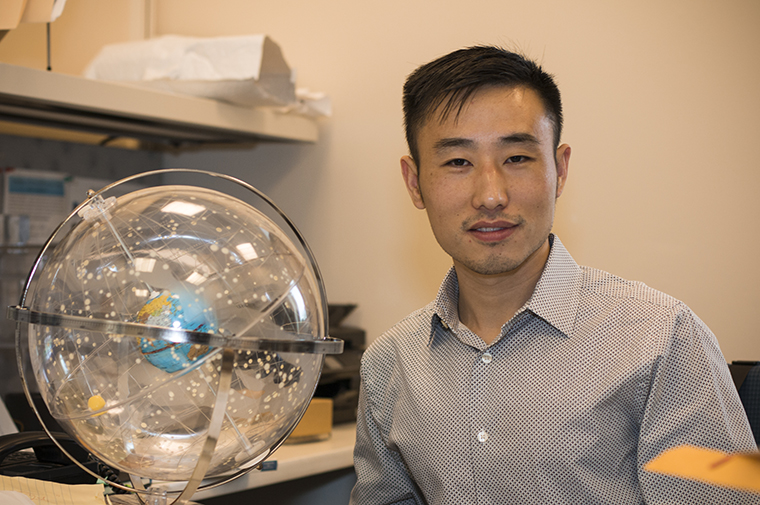Kun Wang, assistant professor of earth and planetary sciences in Arts & Sciences at Washington University in St. Louis, received a $506,053 grant from the NASA Emerging Worlds program for his project, "Experimental Studies of Volatile Fractionation in the Early Solar System."

Wang's co-investigator for the effort is Katharina Lodders, research professor of earth and planetary sciences. The scientists will investigate why the differentiated planetary bodies of the solar system — such as the Earth, moon, Mars and asteroid 4 Vesta — have smaller amounts of volatile compounds when compared with undifferentiated bodies like meteorites.
They will develop a new set of coordinated laboratory experiments to constrain equilibrium and kinetic isotopic fractionation factors during vaporization and condensation as a function of pressure, temperature, oxygen fugacity and starting composition.
Their results will help explain the processes and conditions responsible for volatile element depletions in the early solar system and provide vital information on the origins of the terrestrial planets.






